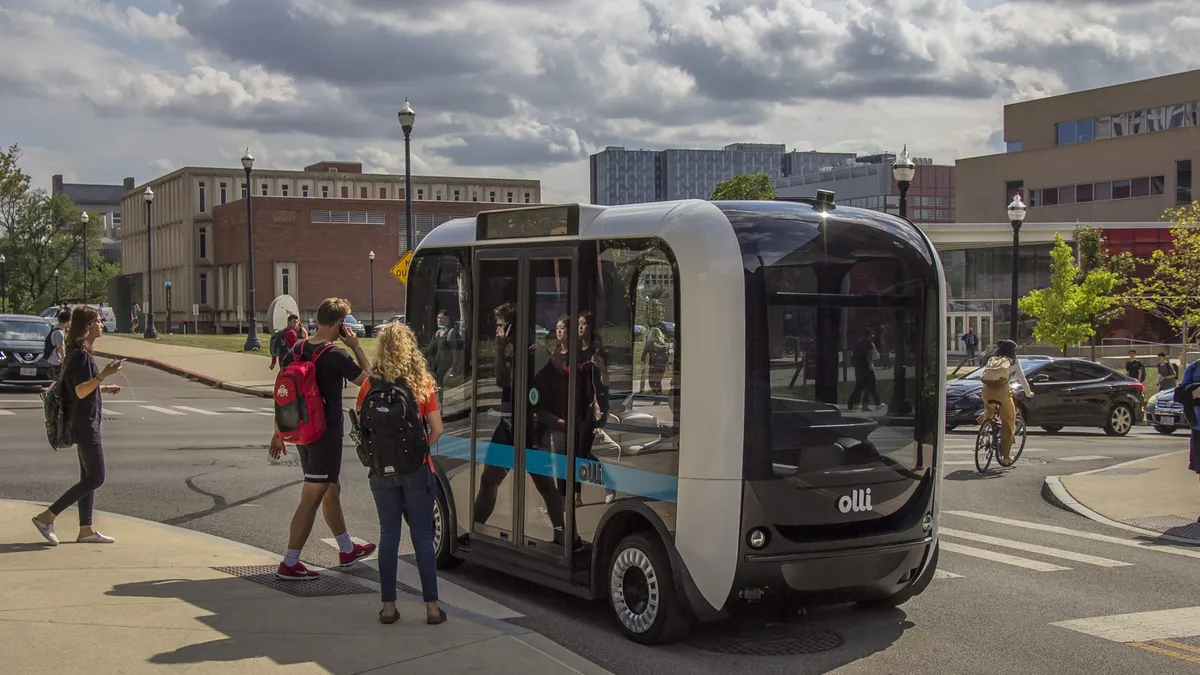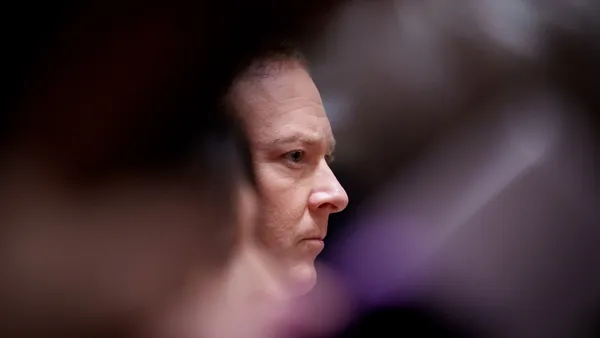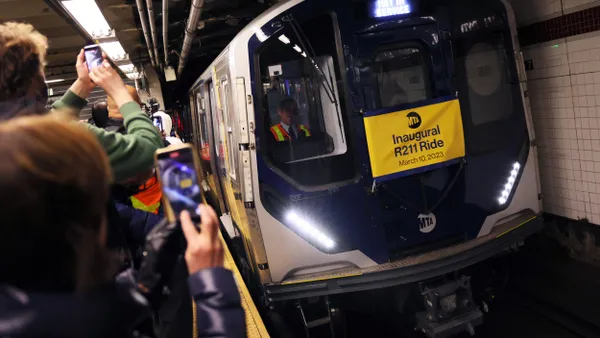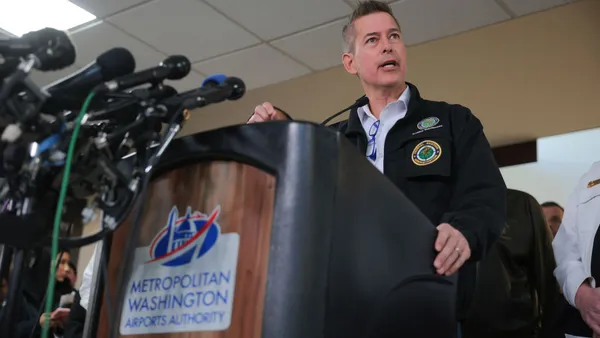Dive Brief:
- Local Motors is expanding testing of its 3D-printed autonomous shuttle onto public roads in Maryland’s National Harbor after reaching a permitting agreement with the Maryland Department of Transportation and local governments.
- The expansion will allow Local Motors to run its shuttle, known as Olli, on public roads. The shuttle is open to all residents, employees and visitors to National Harbor. The electric vehicle integrates IBM’s Watson artificial intelligence (AI) system and has a 40 mile range (25 miles at maximum load with the air conditioning) with a top speed of 25 mph.
- Expanding to public roads will allow the company to gather new insights on how the shuttle deals with intersections, pedestrians and traffic signals, said Rasheed Walford, direct sales manager for Local Motors. "By the time more municipalities are up to speed and ready to bring autonomous vehicles (AVs) onto their roads, we’ll be able to validate our performance," Walford told Smart Cities Dive.
Dive Insight:
As city and state governments continue to wade into deployment of AVs, shuttles have been a natural starting point. They run on predictable routes, move slowly and can fit easily into existing traffic patterns. Companies have also pitched them as a solution to congestion by working in tandem with public transit.
The shuttle is currently deployed in eight locations worldwide, mostly college or corporate campuses like University at Buffalo or the Goodyear campus in Akron, OH. The National Harbor expansion will be a test case for how the shuttle can operate on public roads, with other cars, traffic signals and pedestrians.
It comes after a year-long review with the Maryland Department of Transportation and outreach to local officials, including U.S. Sen. Chris Van Hollen, D-MD. The state is still crafting its rules around AV deployment, and Olli has been one of the state's first major tests. Walford said that much of the review process aligned with the National Highway Traffic Safety Administration's (NHTSA) guidance on AVs, a process that he said made Maryland a good model.
“I've been in conversations with a lot of departments up and down the East Coast, and a lot of them don’t have a permit process or have laws that are way ahead of where they should be," Walford said. "This is the only one I've seen that caters to AV providers and can allow individual companies like Local Motors to test their technology."










